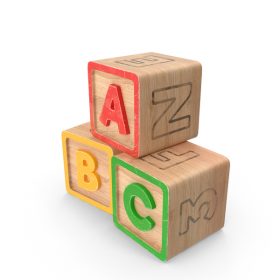
Early Literacy Collaboration Teachers (ELCT)
The Early Literacy Collaboration Teachers serve 8 schools, providing flexible and responsive literacy support to students and teachers.
Early Literacy Collaboration Teachers collaborate with teachers to identify the literacy needs of students, set learning goals and targets, and to action growth strategies through a co-teaching model.
Meet the ELCT’s
| Breanne Glover | Rachel Ottenbreit | Sarah Bonsor Kurki | Sonja Myhre |
| George Jay/Oaklands | James Bay/ South Park | Quadra/Cloverdale | Macaulay/Vic West |
 |
 |
 |
 |
Collaboration Experiences in Schools:
“Working with an ELCT in our school has been a meaningful, collaborative working experience. When making literacy plans for my group, it is so helpful to run ideas by our ELCT to know that I am using correct, current theory and practice. Our ELCT has provided research-based articles, learning materials, and small-group support that has directly benefited the students in my room. As a Kindergarten teacher, I have greatly appreciated our ELCT’s early-literacy knowledge guiding my teaching practice”. Kindergarten Teacher
“The ELCT role has been an excellent support for my grade one literacy program. Throughout the fall we focused on building a strong reading program, and with that well established, we have shifted our focus towards writing. In collaboration with the literacy teacher, we introduced story studio which has been exceptionally engaging and is systematically teaching the elements of oral and written storytelling. Having an ELCT in our school not only helped children learn to read, but has also been a great support for me as a grade one teacher”. Grade 1 teacher
“I have been so fortunate to have the ELCT working in my grade 2 class. Initially I was hoping to have the ELCT assist me with a writing project but once we talked about side by side reading I knew that that was the area I wanted her to support the class. I have appreciated her ability to make connections with all my students; her willingness to discuss my questions and concerns about my students and their reading and her flexibility. She has supported me as I have grappled with how best to teach word work and how best to support the students who are making progress slowly”. Grade 2 teacher
“Having an Early Literacy Collaboration Teacher at our school exemplifies what professional learning and teaching looks like. Through meaningful and timely collaboration, the ELCT and I have been able to implement and test out our lesson plans by co-teaching and modeling what a thinking classroom looks like with my students. This role is key to building learning communities!” Grade ¾ teacher
“The ELCT in our school has given me many teaching ideas and shared such valuable resources! She has provided lots of support around planning and implementing writing lessons/units. Having a second teacher in the room brings extra energy and fun to whatever activity we are doing. She is able to augment my lessons as I’m teaching and helps build confidence in my students. I appreciate the knowledge the ELCT brings to the role, especially about current, research-based approaches to literacy learning. She has informed me (and the whole school) about things I’m interested in but haven’t had time to investigate on my own. I see the ELCT as the next step from Pro-D – she takes the theory and shows how it can relate to classroom practice”. Grade 2 Teacher
“The ELCT has made it possible to launch an engaging and effective literacy program in my classroom, including side by side reading, literacy centers and word work. She has helped make it possible that every student is engaged in literacy for 45 minute blocks. Prior to her support, I could usually get each child to engage for 5 to 10 minutes at a time. She has helped me with assessment and made it possible to spend more time teaching children to read and write. The word work she does with us has been effective in teaching students phonemic awareness”. Grade ½ teacher
“The ELCT has gone above and beyond in supporting, building and enhancing my literacy program. This initiative is successful because of the collaborative approach and having the ability to co-plan and co-teach, which enhances a literacy program. By providing an ELCT, the district has made a great investment in us as teachers, in our students, in our classrooms and schools and in our community in general. The amount of growth and learning for students and the classroom teacher is phenomenal. Having an Early Literacy Collaboration Teacher creates an effective literacy program because the teacher comes twice a week giving us time to collaborate, de-brief what worked, what didn’t work, experiment, second set of eyes on students and their development in literacy”. Kindergarten/grade one teacher
“The ELCT role at our school has allowed us as an early literacy group, teachers and ELCT teacher, to work together with shared ideas to better our students’ literacy skills. The role comes with more knowledge and approaches to teaching literacy which enriches how we teach and present material to the students. It allows us to be creative and really target the different needs in each classroom. This role is also upgrading how we look at literacy as a school and the importance of collaborating in order to help each student”. Grade 1 teacher
“I would like to acknowledge the significant positive impact that the Early Literacy Collaborative Teacher who works at our school, has brought to our students and team. She does it all: push in support and reading sessions with students, providing insightful advice and coaching our teachers with pedagogy and assessment, as well as bringing helpful recommendations during our SBT meetings. She is an integrated part of our school team”. Administrator
“I really appreciate having an ELCT to work with in our school. Our ELCT has provided students in my class with phonological awareness and phonics lessons that I was missing in my program. She is helping me shift my teaching to a more structured literacy approach. Having her support small groups of students means they get individualized lessons that best fit their learning needs, and I see this learning carry over into the work they do back in the classroom. There are quite a few things that I have learned already that I plan to implement into my literacy teaching next year”. Grade 1/2 Teacher


